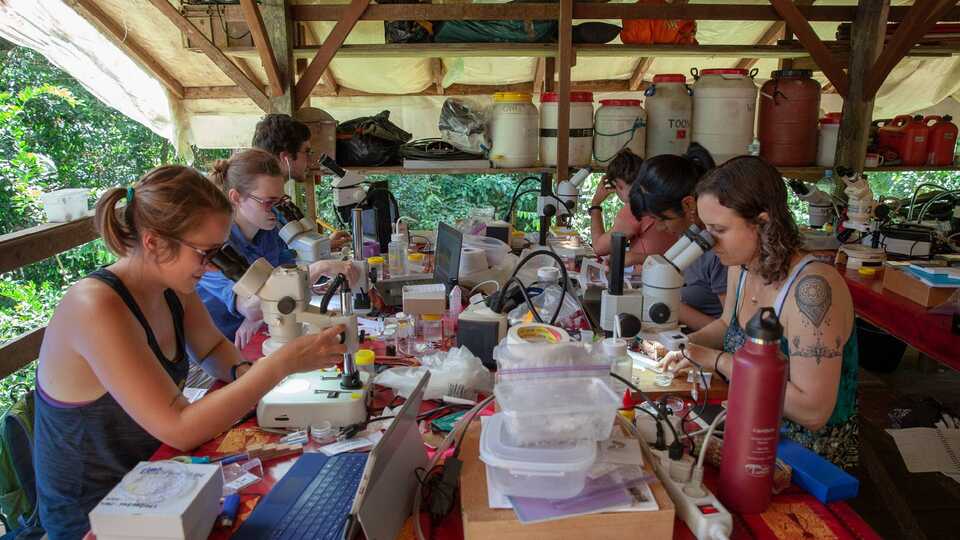2024: No Ant Course planned
2025 No Ant Course planned

The 19th ANT COURSE will be held July 31-August 10, 2023, at the BRC Field station in PNG.
Organizing institutions and sponsors – California Academy of Sciences, US National Science Foundation, and New Guinea Binatang Research Center (BRC), Madang, Papua New Guinea
Course Schedule coming soon
Participant Acceptance Criteria: ANT COURSE is open to all interested individuals (professionals, motivated amateurs such as citizen scientists, undergraduate, and graduate students, postdocs, and professors). Priority is given to applicants currently researching ants. An entomological background is not required. We aim to include students with diverse interests and experiences in biology, including systematics, evolution, ecology, behavioral biology, neurobiology, genetics, global change biology, and conservation. The high ratio of instructors to students allows all attendees to receive a great deal of individual attention. ANT COURSE is presented in English and is limited to 25 participants. Photos from previous courses are available in the yearbook.
Cost: Course fees are estimated at $950. The fees cover food, lodging, and local transportation to BRC from Madang Airport. Participants must also cover all transportation costs between home and Madang airport.
2023 INSTRUCTORS - to be updated
Brian Fisher (Coordinator), Michael Branstetter, USDA-ARS Utah State University; California Academy of Sciences; Flavia Esteves, California Academy of Sciences; Jack Longino, University of Utah; Phil Ward, University of California, Davis; Jacob Yombai, PNG National Agricultural Research Institute
The ANT COURSE Program
ANT COURSE is a workshop that includes three modules: I. Phylogeny, Diversity, Classification, II. The Social Dimension, and III. Roles in Ecosystems and Sustainability.
Ant Course is a unique opportunity to acquire training that is unavailable elsewhere. Lectures and laboratory practice emphasize classification, identification of ant genera, social systems, and the diverse roles ants play in ecosystems. Field trips teach skills such as collecting and sampling, live colony capture, and biomonitoring techniques. Associated lab work focuses on specimen preparation, sorting, labeling, dissection, and monitoring analysis. Information on equipment, literature, and myrmecological contacts are also shared.
This course will provide students with an appreciation of the following:
ANT COURSE Schedule
I. Phylogeny, Diversity, Classification
Module one provides the framework for exploring and understanding of sociality and the role ants play in ecosystems and communities.
Field trip: focused on collecting methods, diversity of collections.
2024: No Ant Course planned
2025 No Ant Course planned
See photos, students, and instructors from past years.
Ant Course is an exceptional experience that has motivated me to pursue new avenues of research. I leave it energized and inspired. Great Work.
– Emilio Bruna 2004
Fantastic Course. Best Field Course ever. The Ant Course has revitalized my research program and has positioned me to make lasting contributions to ecology, biodiversity, myrmecology and evolution.
– Anonymous student 2004
The Ant Course Distinguished Service Award honors a lifetime of achievement in the study of ants.
Read about the history of Ant Course from the perspective of one of its coordinators.